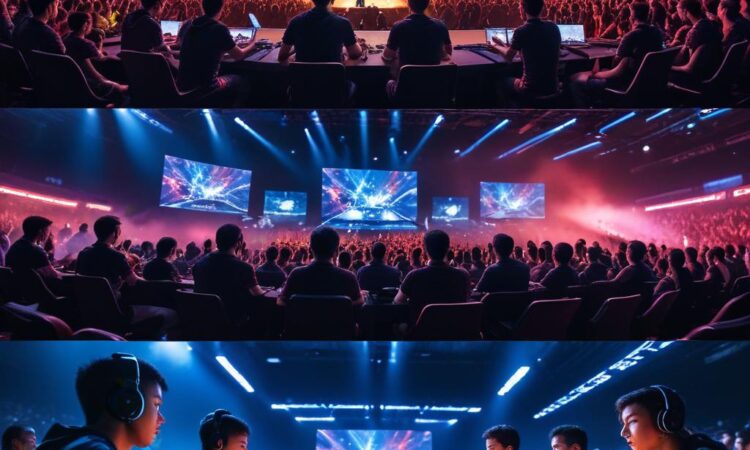Examining the Impact of Toxicity and Cheating in Recent Esports Events
Hey esports fans! Let’s dive into something a bit less glamorous than highlight reels and pro player interviews: the dark side of competitive gaming. Specifically, we’re talking about the toxicity and cheating that have unfortunately popped up in some recent esports events. Over the past week, several incidents have highlighted the ongoing struggle to maintain fair play and a positive community atmosphere.
One notable example comes from the [insert esports game and tournament name here] tournament. During a crucial match, player [insert player name here] from team [insert team name here] was accused of using [insert type of cheat here]. The allegations quickly spread across social media, sparking a huge debate amongst fans. The tournament organizers launched an investigation, and while the results are still pending, the situation has already cast a shadow over the event and the player’s reputation. The potential consequences for [insert player name here], ranging from disqualification to a lengthy ban, are significant and serve as a stark reminder of the seriousness of cheating in competitive esports.
But cheating isn’t the only issue plaguing the esports scene. Toxicity, in the form of verbal abuse and harassment, remains a persistent problem. In the [insert esports game and tournament name here] tournament, viewers and even some players engaged in hateful and abusive online behavior. This behaviour ranged from targeted attacks on specific players to general hateful comments directed at the entire community. The impact of this toxicity extends beyond the emotional distress of the individuals involved. It creates a negative environment that discourages new players from joining and ultimately detracts from the overall enjoyment of the sport.
So, what’s being done to combat this? Game developers and tournament organizers are playing a crucial role. Many game developers are constantly improving their anti-cheat systems, implementing better detection methods, and introducing harsher penalties for those caught cheating. They are also investing in more robust reporting systems, making it easier for players to flag suspicious activity. Tournament organizers, on the other hand, are implementing stricter codes of conduct, increasing penalties for violations, and focusing on fostering a more positive and respectful atmosphere within their events.
However, it’s not just about punishment. There’s a growing recognition that education and community building are equally important. Initiatives promoting sportsmanship, positive communication, and respectful online conduct are becoming increasingly common. These initiatives often involve working with players, casters, and the community to create a more positive environment. These efforts extend beyond just punishing bad behaviour; they also aim to cultivate a culture of respect and fair play.
The fight against toxicity and cheating in esports is an ongoing battle. It requires a multi-pronged approach involving game developers, tournament organizers, players, and the broader community. While we’ve seen progress, there’s still much work to be done to create a truly fair and inclusive esports environment. The recent incidents serve as a reminder that vigilance and continued effort are crucial in maintaining the integrity and reputation of competitive gaming.
Looking ahead, we need more proactive measures, a stronger emphasis on preventing toxicity before it starts, and a greater focus on supporting players who are targeted by online harassment. Transparency in handling cheating allegations is also paramount to building trust and maintaining the integrity of the sport. It’s a complex issue with no easy answers, but through collaboration and consistent effort, we can move towards a more positive and competitive esports landscape.
The cases mentioned above, while specific examples, represent a larger pattern. It’s a reminder that the growth of esports necessitates a parallel growth in the strategies and structures implemented to maintain fairness and positivity within the community. It’s a challenge we all need to face together.
The ongoing evolution of esports means that the fight against toxicity and cheating will also continue to evolve. New challenges will inevitably arise, requiring continuous adaptation and innovation from all stakeholders involved. The commitment to fair play and a positive community remains the cornerstone of a healthy and thriving esports ecosystem.
Let’s hope the coming weeks and months see a continued effort towards creating a better environment for everyone involved in the world of competitive gaming.

